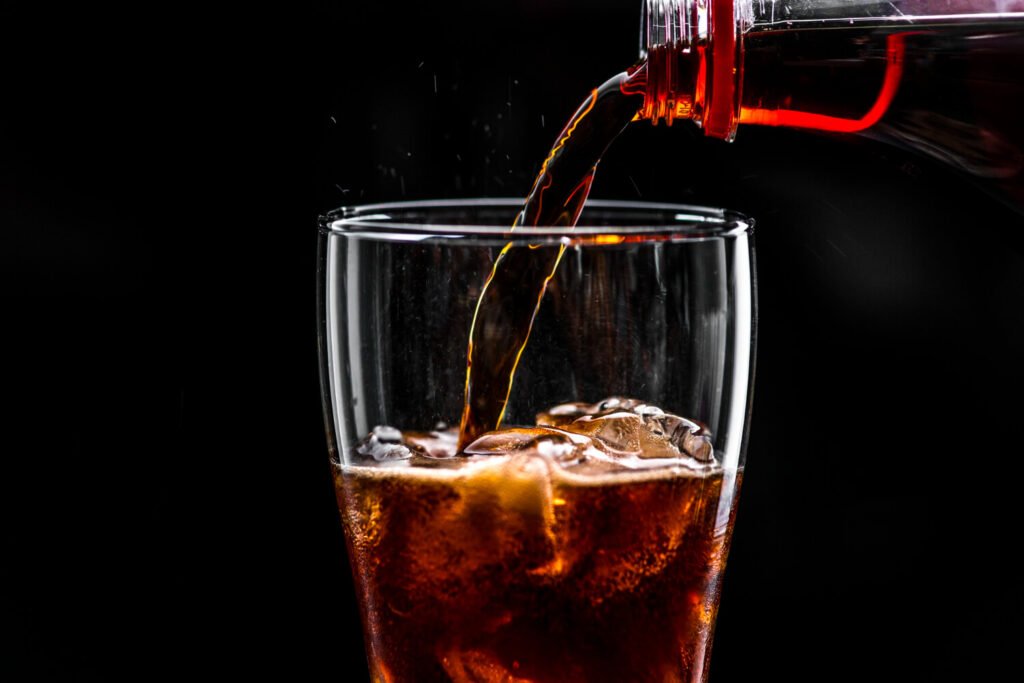Our brain is a strange machine
Our brain is a strange machine. On the one hand, it carries out various complex tasks for our survival; on the other hand, it sometimes does wrong things to us and fools us.
You will often notice that we know certain actions or foods are not good for our bodies, yet we still do them or consume them. This is a game of our brain. For example, you will know that some harmful effects not only affect you but can also impact your next generation. These include heart disease, diabetes, obesity, and even reduced fertility. Despite knowing this, most people are unable to quit; maybe some people can, but some start eating again after quitting. Why is this happening? You can have a better understanding if you are aware of the substances in these foods and how they affect the brain.
How sugar in soft drinks harms you
These beverages contain a significant amount of sugar, up to 250 mL or around 27 grams per small bottle of soft drink. That implies a 250 ml soft drink has around 5 to 6 teaspoons of sugar. When we have a sweet taste, our tongue receptors detect sugar and transmit messages to the brain. This signal enters the cerebral cortex and activates the brain’s reward center. As a result, a lot of dopamine is released. When this dopamine binds to the dopamine receptors in the brain, we feel happiness.
But this happiness doesn’t end here. By consuming this drink, the brain records the experience of happiness, activating the reward center and obtaining happiness. When the brain records such an experience, it tempts the person to do it again and again.
This could involve eating something or doing something; your brain records the experience of happiness. Interestingly, the dopamine released in our brain due to soft drink consumption makes us feel happy. However, if you drink soft drinks today and get a dopamine release, you won’t get the same amount of dopamine on the seventh day.
You will notice that those who have been drinking soft drinks for a long time increase their intake day by day. If they are in control, that’s one thing, but if not, they either eat more than they used to or their frequency of consumption increases. If you used to drink once a day, you may now drink twice as much. This is because, over time, as much dopamine as was released by consuming 250 ml before is no longer released, but since the brain has recorded that dopamine will come from this, it signals you to consume more to get the dopamine.
How Caffeine in soft drinks harms you
Coke contains about 25 milligrams of caffeine. So why the caffeine? The company doesn’t just add caffeine for no reason; it gives us many signals in the brain. Its use is very interesting. We consume it every day but don’t know what it does to our body. Caffeine releases dopamine like sugar, activating the brain’s reward center and giving us a feeling of happiness. The brain wants this feeling of happiness to return repeatedly.
How CO2 gas in soft drinks harms you
When you open the bottle, you can hear gas getting away. The gas stays in the solution but gradually dissipates after opening. If you buy a soft drink bottle today and keep it for a few days, the gas will escape, making the drink too sweet and unpalatable.
You consume a lot of sugar, and while the sugar is doing what it’s supposed to do, you don’t feel it as much because of the gas.
Again, sugar activates the brain’s reward system and releases dopamine, making people want to consume it repeatedly, strengthening the effect of sugar. Although the ingredients work differently, when we consume soft drinks, these three ingredients work simultaneously, making their effects stronger and the desire to consume them more intense. On the other hand, it becomes difficult to quit, and many people are unable to stop.
Interestingly, there may be a genetic basis for a preference for specific soft drinks. According to research, those with a variant of the FTO gene were more likely to consume these beverages. This genetic variation affects around 20-30% of the general population. This gene variation may explain why some people struggle to stop.However, you are still free to quit. Even with this gene mutation, you can cut your use and finally quit.
Now the question is, is Diet Coke any good?
Diet Coke does not contain sugar, but it is sweetened in some way. For those of us with sugar-detecting receptors in our tongue, it doesn’t matter whether the sweetness comes from sugar or another source. When they detect sweetness, they send a signal to the brain. So the same thing that happens with a normal drink will happen with a diet or sugar-free soft drink.
Additionally, those who consume these drinks didn’t start with sugar-free drinks. They used to consume regular sugary drinks. They believe that by switching to sugar-free drinks, they avoid harm and can consume as much as they want.
However, studies show that, like normal drinks, various diseases increase the risk with diet sodas. So, if you want to stop consuming soft drinks but keep making excuses, your brain is fooling you. When you rationalize consumption by thinking it’s okay to drink now and you’ll stop later, your brain is deceiving you.
These rationalizations are your brain tricking you. By understanding how your brain fools you, you can avoid falling into these traps. If everyone comments and shares their experiences, it will help everyone.

